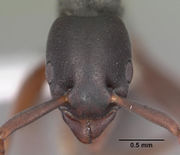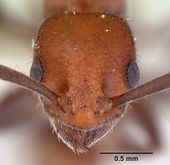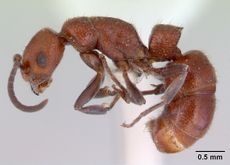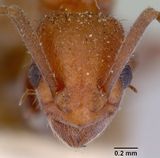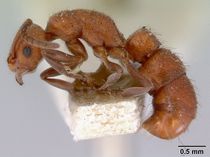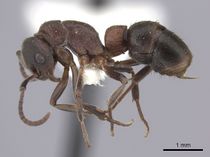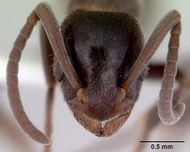Key to Platythyrea of the southwestern Australian Botanical Province
This worker key is based on: Heterick, B. E. 2009b. A guide to the ants of South-western Australia. Records of the Western Australian Museum, Supplement 76: 1-206. Part 2.
You may also be interested in
1
- Viewed dorsally, node longer than wide; dorsum of mesosoma without erect setae . . . . . Platythyrea parallela
- Viewed dorsally, node wider than long; dorsum of mesosoma with erect setae . . . . . 2
2
return to couplet #1
- Posterior dorsal surface of node with distinct median protuberance (Figure 500) . . . . . Platythyrea dentinodis
- Posterior dorsal surface of node without protuberance (Figure 501) . . . . . 3
3
return to couplet #2
- Erect setae long (≥ greatest width of antennal scape); head and mesosoma light reddish-brown; gaster dark brown . . . . . Platythyrea brunnipes
- Erect setae at most equal to greatest width of antennal scape, mostly shorter; if bicoloured then head darker than mesosoma . . . . . 4
4
return to couplet #3
- Body distinctly bicoloured, mesosoma lighter than gaster and most of head, head with light coloured patches on genae . . . . . Platythyrea turneri
- Body uniformly coloured dark brown . . . . . Platythyrea micans
